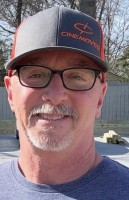Mark Hebert has worked for years providing medical care to his peers and people in the community with HIV. Working in infectious disease, Mark specializes in the treatment of a disease that, up until 20 years ago, was rarely non-fatal. His world was turned on its head a couple of months ago when he was diagnosed with AML, Acute Myeloid Leukemia.
The oncologist explained that his AML is potentially treatable and curable. The cure is a stem cell transplant. Yes, you read that right. Wil went through the stem cell transplant process in October 2023.
Before the stem cell transplant, Mark had two rounds of chemotherapy to prepare his body for the procedure.
Knowing what Wil went through has given us perspective on what an arduous medical procedure a stem cell transplant treatment is. The process and recuperation were intense. The conditioning process involves several days of chemotherapy, and then the stem cells are infused. As the marrow inside your bones dies off from the chemotherapy, the new stem cells navigate to the bones, where they get busy making new marrow.
There's a lengthy period when the patient is especially vulnerable to infections, and the new blood being produced lacks immunity to diseases. Infections that can occur after a transplant arrive swiftly and can be lethal very quickly. This means Mark will not be working for four to five months following the transplant.
For 90 days post-transplant, Mark will need full-time care to monitor his recuperation. He needs 24/7 monitoring and can't be left alone for more than an hour. Wil will be the full-time care provider and will not be able to work, though he'll receive help and strength from loved ones.
Wil bounced back a hundred percent, but the process took time. We are hopeful that Mark will also recover 100 percent, but the process will be long and challenging. We know all about it. We've already been through it once.
Mark has had no symptoms and continues to feel good. The mayhem begins on June 1st, when Mark is admitted to Emory University Hospital. He'll be at Emory for approximately a month. We're both afraid of the next steps, but at least we know what those steps are.
This treatment will save Mark's life. Many, many people we love have reached out to see how they can help. Please consider donating to our Mark's CareLines fund and share with your loved ones.







